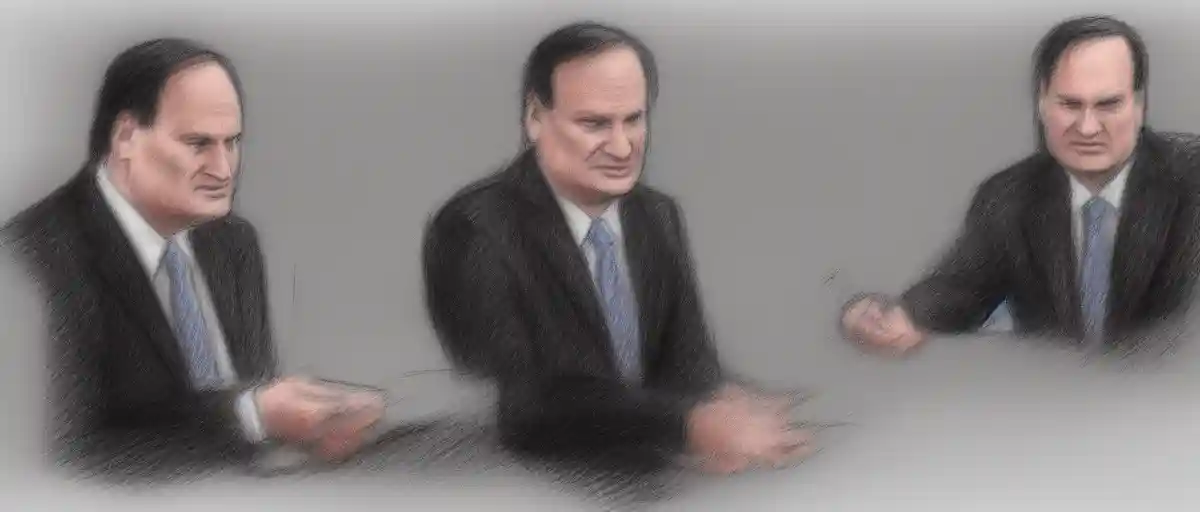This May Also Grab Your Attention:
Controversy Surrounds Justice Alito’s Role in Abortion Rights Cases
The refusal of Justice Samuel Alito to recuse himself from future abortion rights cases has sparked a heated debate regarding potential bias and impartiality within the Supreme Court. Senate Democrats argue that his participation in a virtual seminar hosted by the Federalist Society could create an appearance of bias towards conservative or anti-abortion views. Still, Justice Alito defends his impartiality, dismissing the demand as unfounded.
Those in favor of demanding recusal believe that Justice Alito’s involvement with the Federalist Society event indicates a strong alignment with conservative ideologies, which could influence his decision-making process. They argue that his participation in an event associated with conservative viewpoints raises legitimate concerns about his ability to objectively adjudicate cases related to abortion rights.
However, it is important to acknowledge that no concrete evidence of bias has been presented. The Democrats’ argument rests largely on subjective interpretations and assumptions. While participation in the Federalist Society event could be seen as an indication of ideological leanings, it does not necessarily translate into predetermined judgments or a lack of impartiality.
Justice Alito’s defense of his integrity and impartiality is founded on his assertion that his involvement in the virtual seminar does not imply any personal bias towards abortion rights. It is crucial, though, that he provides further explanation and addresses the specific concerns raised by the Democrats in order to alleviate doubts over his ability to fairly decide cases involving abortion rights.
Ultimately, the decision to recuse oneself from a case lies within the discretion of each Supreme Court justice, with no binding rules governing such decisions. While concerns about perceived bias in the judiciary should be taken seriously, it is essential to approach these issues with caution and demand objective evidence before making conclusive judgments.
When it comes to highly contentious issues like abortion rights, the perceived impartiality of Supreme Court justices becomes crucial. With Justice Alito refusing to recuse himself from future cases, the debate over potential bias within our highest court intensifies. While the Democrats raise valid concerns about the appearance of bias due to his participation in a Federalist Society event, it is important to remember that concrete evidence of actual bias is lacking. It is crucial for Justice Alito to provide a more comprehensive explanation to address these concerns and ensure the public’s trust in our judicial system. However, subjective interpretations should be carefully weighed against the principle of a judge’s discretion in deciding whether to recuse oneself. The potential impact on future abortion rights cases and the broader integrity of the Supreme Court warrant a thorough examination and transparent discussion.
Here's A Video We Thought You Might Also Like:
Author Profile

- I'm a technology columnist with a passion for gadgets and innovation, and I also analyze the political implications of technological advancements. From privacy concerns to ethical debates, I explore how technology intersects with politics.
Latest entries
 Breaking News2023.12.14John Kerry’s Radical Plan to Ditch Fossil Fuels Is It a Game Changer or Economic Disaster
Breaking News2023.12.14John Kerry’s Radical Plan to Ditch Fossil Fuels Is It a Game Changer or Economic Disaster Breaking News2023.12.06Dumbfounding Claims Republican Bill Could Lead to Premature Deaths and Environmental Disaster
Breaking News2023.12.06Dumbfounding Claims Republican Bill Could Lead to Premature Deaths and Environmental Disaster Breaking News2023.12.04Military Families Displaced Due to Biden’s Border Policy The Untold Consequences
Breaking News2023.12.04Military Families Displaced Due to Biden’s Border Policy The Untold Consequences Breaking News2023.11.28Hair-raising Incident National Christmas Tree Collapses Near White House
Breaking News2023.11.28Hair-raising Incident National Christmas Tree Collapses Near White House






